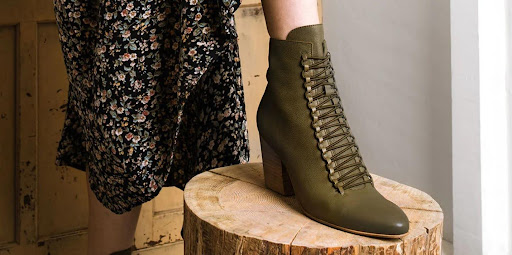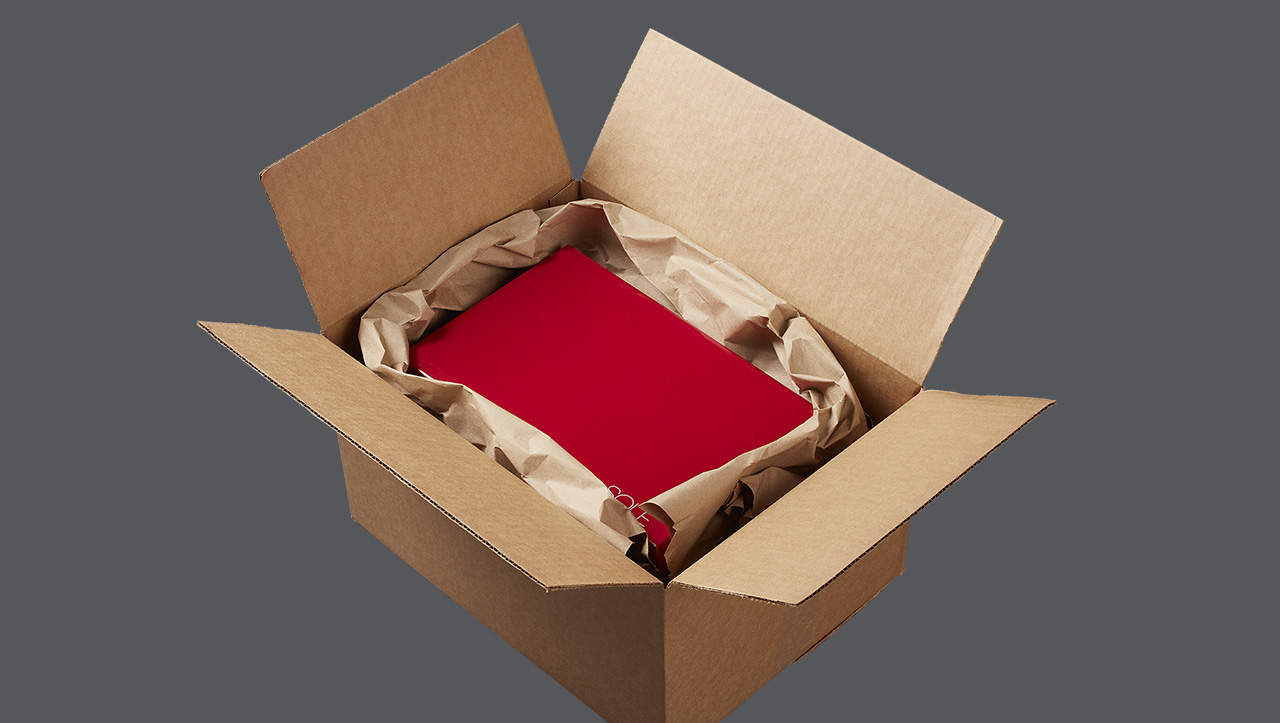

Fashion
4 Marvelous Patek Philippe Nautilus Watches That You Need
The Patek Philippe Nautilus was created by renowned watch designer Gerald Genta, who was hired to save Patek from the ravages of the quartz watch crisis. The watchmaker’s vision for the brand-saving Nautilus: an ocean-inspired luxury watch that is both stylish and durable enough to be worn anywhere. The Nautilus, which was initially criticized for being too modern, was a huge success.
The Nautilus, like many classics, was not universally acclaimed when it debuted in 1976. With its larger size and stainless steel rather than a gold case, the design was a dramatic shift from Patek’s existing range. The ‘ears’ on the side of the case (style of the porthole hinge of a mega yacht), the large octagonal bezel, and the brilliant Black-Blue dial with horizontal streaks are the defining elements of the original Nautilus design.
1. Patek Philippe 5711 Nautilus
One of the marvelous Patek Philippe Nautilus watches is the Patek Philippe 5711 Nautilus or Patek Philippe Nautilus 40th Anniversary 5711/1P Platinum watch. The case and bracelet are made entirely of 950 platinum, and the watch is studded with diamonds. Applying baguette-cut diamonds as hour markers is a classy and masculine technique for when you want to convey wealth while remaining a little more under-the-radar. At 44.05mm wide, the Patek Philippe Nautilus 5711/1P is also bigger than most Nautilus watches. Water-resistance remains at 120 meters, the same as in previous Nautilus models. The interesting, in-house-made caliber 324 S C automatic movement is housed within the 5711 Patek Philippe Nautilus. It’s a very capable and dependable daily wear, thanks to a lot of Patek’s in-house technology. The movement has 213 parts and runs at 4Hz (28,800bph) with Patek’s Spiromax balance wheel and approximately 40 hours of power reserve. It’s also a rather slim movement, measuring only 3.3mm thick.
2. Nautilus Travel Time Chronograph 5990/1A
The “travel time” portion of the name comes, as it is one of Patek Philippe’s more innovative approaches. Patek has used two hour hands to track the two different time zones. The skeletonized one keeps track of your home time zone, whereas the solid one keeps track of the local hour. This accomplishes two tasks very efficiently. Patek Philippe incorporated a chronograph complication, with the 60-minute register located at 6 o’clock on the dial, balancing the date display at 12. They had to develop a new movement for this combination of complications, the caliber CH 28-520 C FUS, which integrates the column wheel chronograph with the travel time function. In the middle of this is a one-of-a-kind clutch (created in 1959) that separates the gear train while also facilitating bi-directional adjustment.
3. Nautilus 40th Anniversary 5976/1G
The Patek Philippe Nautilus 40th Anniversary 5976/1G is limited to 1,300 pieces and comes in a massive 49.25-millimeter-wide 18-karat white gold case. No matter how you look at it, 50 millimeters wide is a large size for any modern luxury watch, not just a Patek Philippe. Things look a little different when you consider the case’s 10-to-4 o’clock diagonal measurement, which is a far more reasonable 44 millimeters, while the 5976/1G measures 49.60 millimeters lug-to-lug. Most 42 millimeter-wide round watches have this kind of lug-to-lug size. Because 42mm was large for a watch at the time, it easily got the nickname “Jumbo.” Its purpose was to be a thematic sequel to the Audemars Piguet Royal Oak (from 1972), which launched the era of the luxury steel sports watch. Gerald Genta, the late iconic watch designer, designed both the Royal Oak and the Nautilus. Patek Philippe’s CH 28-520C flyback chronograph caliber with automatic winding and a date at 3 o’clock powers the limited-edition Patek Philippe Nautilus 40th Anniversary 5976/1G. The CH 28-520C, which operates at 4 Hertz, has a power reserve of 45 to 55 hours, which is replenished by a 21k gold automatic winding rotor.
4. Nautilus Chronograph 5980/1A-019
As borders between the elements on the dial, Patek Philippe creates very distinct separation zones with Nautilus Chronograph 5980/1A-019. Because Patek Philippe used deep black edges on the hands and applied hour markers – even though their centers are white – high contrast is maintained on the dial of this Nautilus model. It creates a beautiful, legible appearance while still retaining its ability to see in the dark. The Patek Philippe Nautilus 5980 is powered by a Patek Philippe caliber CH 28-520 C automatic chronograph movement made in-house. The movement and its gold rotor are visible through a sapphire crystal on the back of the watch. It’s a fabulous and decorated movement with a lovely three-dimensional quality thanks to the bridges. Its bracelet has lovely polished center links and beautifully beveled brushed links. This is an excellent use of steel in a high-end luxury timepiece.
Takeaway
Patek Philippe has been producing watches continuously for 177 years, resulting in a vast amount of experience that is passed down from one generation of watchmakers to the next. They have mastered every aspect of fine watchmaking, from the hand-winding two-hand watch to sophisticated masterpieces with minute repeaters, tourbillons, and split-seconds chronographs. Masterful artisan craftsmanship is inextricably linked to the use of modern, high-tech machinery. It’s a good idea to have a Patek Philippe Nautilus.
Fashion
How Free Crochet Patterns Can Help You Improve Your Crocheting Skills

Crocheting is a timeless craft that allows for creativity, relaxation, and skill development. Whether you are a beginner or an experienced crocheter, using free crochet patterns can be an excellent way to enhance your abilities. These patterns offer guidance, introduce new techniques, and help you refine your skills without any financial investment. In this article, we will explore how free crochet patterns contribute to skill improvement and why they are a valuable resource for every crochet enthusiast.
1. Learning the Basics with Free Crochet Patterns
For beginners, starting with simple patterns is essential. Free crochet patterns provide step-by-step instructions that help new crocheters understand fundamental techniques such as chain stitches, single crochet, and slip stitches. Many beginner-friendly patterns also include illustrations or video tutorials, making it easier to grasp essential concepts.
By following structured patterns, beginners can gradually build confidence and progress to more intricate designs. Free resources eliminate the pressure of purchasing patterns, allowing learners to practice without financial commitment.
2. Exploring Different Stitch Techniques
One of the most effective ways to enhance your crocheting skills is by learning different stitch techniques. Free crochet patterns introduce various stitches, from basic to advanced, helping crocheters expand their knowledge. Some commonly featured stitches include:
- Half-double crochet (HDC) – A versatile stitch used in many projects.
- Treble crochet (TR) – A taller stitch that creates a looser texture.
- Shell stitch – A decorative stitch perfect for blankets and scarves.
- Cable stitch – Often found in intricate patterns for textured designs.
Experimenting with new stitches through free patterns allows crocheters to understand how different textures and densities affect their work, ultimately improving their overall technique.
3. Mastering Pattern Reading Skills
Reading and interpreting crochet patterns is an essential skill for any crocheter. Many beginners struggle with understanding abbreviations, stitch counts, and pattern layouts. Using free crochet patterns, crocheters can practice reading instructions and symbols without the fear of making costly mistakes.
As crocheters become more comfortable with pattern reading, they can confidently tackle more complex designs and even start modifying patterns to suit their preferences.
4. Enhancing Speed and Consistency
Crocheting efficiently requires practice and repetition. By working on a variety of free crochet patterns, crocheters can improve their speed while maintaining stitch consistency. Repeating patterns with similar stitches helps muscle memory develop, leading to smoother and more uniform work.
Additionally, free patterns encourage crocheters to try different projects—such as hats, scarves, and amigurumi—which involve varying levels of speed and precision. This practice ultimately leads to better control and dexterity.
5. Encouraging Creativity and Customization
One of the best aspects of using free crochet patterns is the opportunity for creativity. As crocheters gain confidence, they can start modifying patterns by adjusting stitch counts, changing colors, or incorporating new textures. This customization allows for unique, personalized creations while refining technical skills.
Many free patterns also serve as inspiration for original designs. Once crocheters understand how patterns are structured, they can experiment with their own ideas and create one-of-a-kind pieces.
6. Practicing with Different Yarn Types
Each type of yarn behaves differently, and understanding how various yarns affect a pattern is crucial for skill development. Free crochet patterns often recommend specific yarns, but crocheters can experiment with alternatives to see how different fibers and weights impact the final product.
For instance, working with cotton yarn for dishcloths, wool for winter accessories, or acrylic for blankets helps crocheters gain experience with different textures, drape qualities, and durability factors. This knowledge becomes invaluable when selecting yarn for future projects.
7. Building a Crochet Routine with Structured Projects
Consistency is key when it comes to improving crochet skills. Free crochet patterns provide structured projects that encourage regular practice. Whether crocheters dedicate time each day or set weekly goals, working through patterns ensures continuous learning and refinement of skills.
Having access to an extensive library of free patterns also means crocheters can always find something new to work on, preventing stagnation and keeping the craft engaging.
8. Joining Crochet Communities for Support and Learning
The availability of free crochet patterns has led to the growth of online crochet communities. Platforms such as Ravelry, Pinterest, and Facebook groups offer a space where crocheters can share patterns, seek advice, and showcase their work.
Engaging with these communities provides additional learning opportunities, as experienced crocheters often share tips, troubleshooting advice, and modifications to existing patterns. Being part of a crochet community also helps maintain motivation and encourages collaboration.
9. Gaining Confidence to Take on Advanced Projects
As crocheters progress through different free crochet patterns, they build the confidence needed to take on more advanced projects. What once seemed intimidating—such as intricate lacework, detailed amigurumi, or complex garments—becomes achievable with practice and persistence.
By starting with simpler patterns and gradually working through more challenging ones, crocheters can develop a strong foundation that prepares them for ambitious creations.
Conclusion
Utilizing free crochet patterns is an excellent way to improve crocheting skills without financial constraints. These patterns help beginners learn the basics, introduce new stitch techniques, enhance speed and consistency, and encourage creativity. They also provide structured practice, support from online communities, and the confidence to take on advanced projects.
Whether you are just starting out or looking to refine your craft, incorporating free crochet patterns into your routine is a smart and effective way to grow as a crocheter. With endless patterns available, there is always something new to learn and create.
Fashion
Why Django and Juliette Boots Are Worth the Investment: Insights from Seasonal Sales

For people who love style and quality, Django & Juliette shoes are really popular. The boots come in unique styles, comfort, and pay attention to details. Even though they can be sometimes pricier, season sales offer the perfect time to spend the cash for investment. Many designs are hugely discounted during these sales. So, you invest in Django & Juliette boots, and you will never go wrong with classic, durable footwear that can always dress you up with perfect balancing acts between fashionable style and craftsmanship.
Styling Django and Juliette Boots: How to Pair Footwear with Any Outfit
Mainly, why do people like their Django & Juliette boots so much? They are so versatile that they easily go with almost everything a woman has in her wardrobe. Teamed with slim jeans and a simple blouse, they look effortless to stroll about in the office. Try teaming them with a fitted dress or skirt for a put-together look. Django and Juliette boots sale have patterns and colour combinations that make them suitable for functions where one would like to be dressed up. These boots could really add glamour to a business suit or an elegantly cut dress, but the rest of the outfit should be kept simple with good coordination. Anything goes to the dresser up a bit with their signature designs, from colourful designs to classic leather types. Winter layers of warm knit or summer outfits complement Django & Juliette boots amazingly in any season. Having a pair gets you a sleek and versatile alternative that goes well with almost every ensemble.
Where to Look for End-of-Season Sales to Find Django and Juliette Boot Discounts
Perhaps the best time to buy Django & Juliette shoes is during the end season sales. This is because most of the deeply discounted products are usually available during the end season Django and Juliette boots sale, which comes along with a discount of anywhere between 20% and 50%. Provided that you can plan ahead well enough, you could get a better deal if you wait until the retailer has an end-of-season sale in order to clear its warehouse for new merchandise. Be careful about the transition when the store is taking inventory in early spring or fall. Be wise about what you want when shopping for these sales. People seeking some really classic minimalist items that they can wear comfortably throughout the seasons should get boots that are in neutral colorations such as black or brown. The nice thing about the trends is that it really does not make it difficult to incorporate into your wardrobe. More likely, they will not be out of fashion any time soon either. End-of-season sales, though, are a great chance to acquire more quirky and flashy designs at an almost negligible price. If you’re feeling adventurous, give your shoe collection a bit of spice by adding a particularly funky design or one that’s truly bright. Sign up to receive emails from online stores that carry Django and Juliette boots sale to get savings on your purchases. Many retailers give subscribers access to sales before public have that availability, so you might get there when it’s less busy and find the best fashion deals. Monitor your favourite retailers on social media, too. Many retailers are happy to offer flash sale and short-time sale alerts when those go live. You’ll have a chance to browse through several web sites just to know what to expect and get some price comparisons on your favourite style when shopping online at discount prices. You would really get a real bargain on these quality boots if you were willing to wait and be well-prepared for the possible wait.
Fashion
How paper void fill works?

In the world of packaging, finding eco-friendly solutions is more crucial than ever. One such solution gaining popularity is paper void fill. But how does it work, and why is it considered sustainable? Let’s dive into the details.
What is Void Fill?
Before we delve into the specifics of paper void fill, let’s first understand what void fill is all about. Void filler materials are used in packaging to fill empty spaces within boxes or containers. The primary purpose is to prevent items from shifting during transit and to provide cushioning to protect against damage.
Traditionally, void fill materials have been made from materials like polystyrene foam or plastic air pillows. While effective, these materials pose significant environmental challenges due to their non-biodegradable nature.
Introducing Paper Void Fill
Paper void fill, on the other hand, offers a sustainable alternative. Made from recycled paper or renewable sources like Kraft paper, it provides excellent cushioning while being biodegradable and recyclable. But how does it work?
How Paper Void Fill Works
Paper void fill comes in various forms, including crumpled paper, shredded paper, or paper pads. The idea is simple yet effective: these paper materials are placed inside shipping boxes to fill empty spaces around products, ensuring they remain secure during transportation.
When an item is placed in a box for shipping, it’s essential to ensure there’s minimal movement during transit. Paper void fill achieves this by conforming to the shape of the product and the box, effectively immobilizing the item and preventing it from shifting or bouncing around.
Advantages of Paper Void Fill
Now that we understand how paper void fill works, let’s explore why it’s considered a sustainable choice for packaging:
- Biodegradable: Unlike traditional void fill materials, paper void fill is biodegradable. This means that once it reaches the end of its life cycle, it can break down naturally without causing harm to the environment.
- Recyclable: Paper void fill can be easily recycled along with other paper products, reducing the amount of waste sent to landfills.
- Renewable: Many paper void fill products are made from recycled paper or sustainably sourced paper, making them a renewable resource.
- Effective Cushioning: Despite being eco-friendly, paper void fill doesn’t compromise on performance. It provides excellent cushioning to protect fragile items during transit, ensuring they arrive at their destination intact.
Sustainable Void Fill Solutions
As businesses and consumers alike become more environmentally conscious, the demand for sustainable void fill continues to rise. Paper void fill emerges as a frontrunner in this quest for sustainability, offering a viable alternative to traditional packaging materials.
By incorporating paper void fill into their packaging strategies, businesses can reduce their carbon footprint and demonstrate their commitment to environmental stewardship. Additionally, consumers are increasingly favoring brands that prioritize sustainability, making eco-friendly packaging choices a win-win for both businesses and the planet.
Conclusion
In conclusion, paper void fill presents a sustainable solution for packaging, offering effective cushioning while minimizing environmental impact. By understanding how paper void fill works and its advantages over traditional void fill materials, businesses can make informed decisions to embrace sustainability in their packaging practices.
As the demand for eco-friendly packaging continues to grow, paper void fill stands out as a practical and environmentally responsible choice. By making the switch to paper void fill, businesses can not only protect their products during transit but also contribute to a healthier planet for future generations.
Incorporating sustainable practices like paper void fill is a step in the right direction towards building a more environmentally conscious world. Let’s embrace the power of paper void fill and pave the way for a greener future.

 Business5 years ago
Business5 years agoFind out how useful a loan is without a credit check

 Digital Marketing4 years ago
Digital Marketing4 years agoIs YouTube Marketing Capable of Taking Your Business to the Next Level?

 Food4 years ago
Food4 years ago5 Best and Worst Foods for Boosting Metabolism

 Business4 years ago
Business4 years agoContent Creation Tips Every Digital Manager Needs to Know

 Business3 years ago
Business3 years agoBest Workplace Upgrade

 Lifestyle4 years ago
Lifestyle4 years agoHow to Choose the Best Air Fryer for Me

 Fashion4 years ago
Fashion4 years ago8 Top Leather Jacket Picks To Try Out This Year

 Tech5 years ago
Tech5 years agoFood Lion Employee Login at ws4.delhaize.com – MyHR4U















